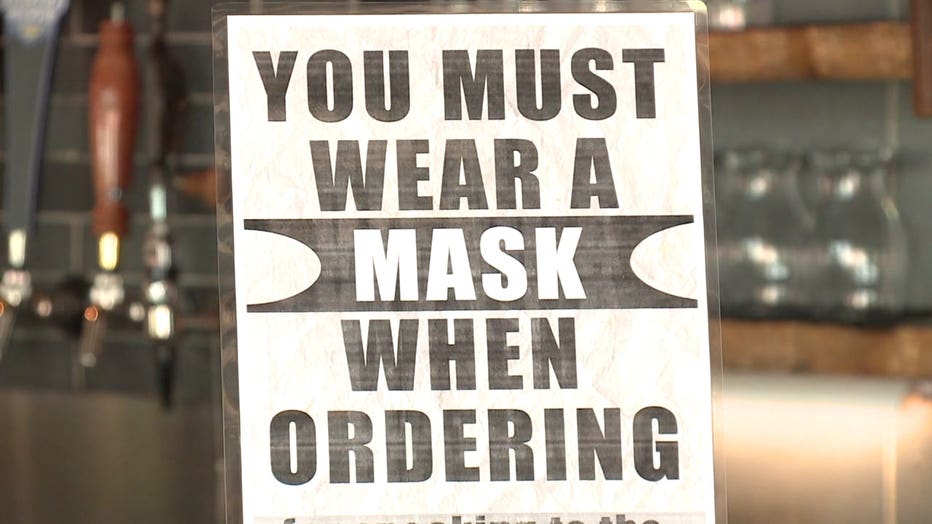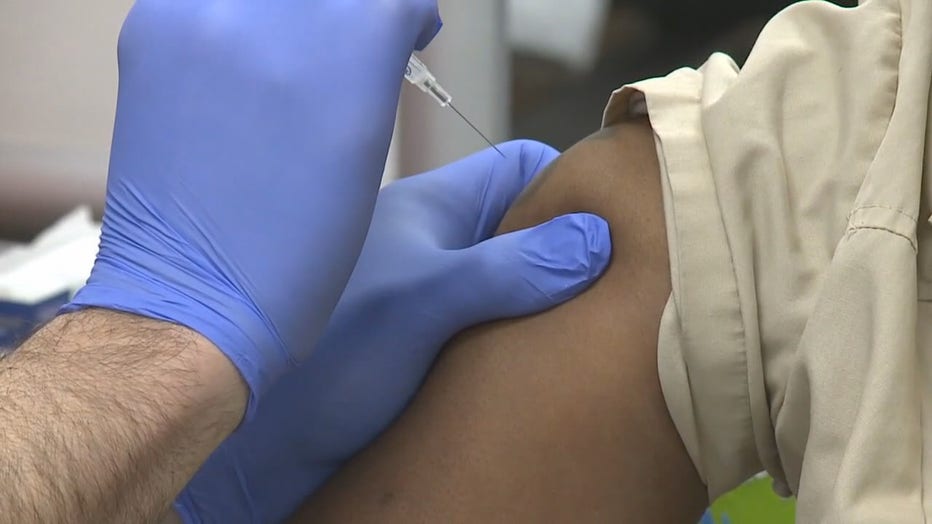Wisconsin COVID-19 relief bill about more than money

Wisconsin COVID-19 relief bill about more than money
The bill would make $100 million available to help fight COVID-19. However, many of the 44 provisions in the bill have nothing to do with money.
MILWAUKEE - For the first time in eight months, the Wisconsin Assembly passed a bill related to COVID-19 on Thursday, Jan. 7.
The bill would make $100 million available to help fight COVID-19. However, many of the 44 provisions in the bill have nothing to do with money.
Teachers unions, including in Milwaukee, are one of many organizations that could be impacted.
School boards across the state have had to make tough decisions about whether classes should be held in-person over virtually. If the Assembly's bill becomes law, things would change.

The bill would required two-thirds of a school board to agree to keep a district virtual.
"What right does the state legislature have meddling in local control?" said Ron Martin, president of the Wisconsin Education Association Council (WEAC).
WEAC is against the bill, saying it is harmful for students and staff. The two-thirds rule for school boards is just a small part of the bill.

Wisconsin Capitol in Madison
Assembly Speaker Robin Vos (R-Rochester) proposed the bill and said it provides certainty for parents and an overall comprehensive plan to move the state forward.
From mandating masks to adding plexiglass shields, businesses across Wisconsin have been adding protections for customers. Multiple business organizations testified in favor of the bill -- including Wisconsin Manufacturers and Commerce (WMC).
"Our members, once they got over the initial shock of how to function day-to-day in the new normal, very quickly realized that one of the biggest threats to their existence was going to be frivolous COVID-19 litigation," said Cory Fish, general counsel for WMC.

Fish said the bill would create civil liability protection for businesses, schools and nonprofits. Basically, a person could not sue an organization for explores to COVID-19 unless there is "reckless or intentional misconduct."
"People need to be able to have protections. If people who are in decision-making power don’t follow what’s the best health guidance, they should be liable," Fish said.
"We do hope that the legislative leadership and the governor work together to get this done not only for the business community but again for nonprofits and school."

The bill seemingly impacts all aspects of society. It prohibits the government from closing places of worship. It authorizes pharmacy students and dentists to administer the COVID-19 vaccine. It also limits how long local health officers can shut down businesses.
"The measures that have been added would really limit what public health officers can do," said Robin Lankton, president of the Wisconsin Public Health Association.
FREE DOWNLOAD: Get breaking news alerts in the FOX6 News app for iOS or Android.
The bill is now in the hands of the Wisconsin Senate. It would need to pass the Senate and be signed by the governor to become law.
It's a high hurdle for a bill that had no Democratic support from Assembly members; it passed 56-34 strictly along party lines in the Republican-controlled legislative chamber.
Gov. Tony Evers, a Democrat, said earlier this week that he is disappointed that state Republicans who proposed the bill, instead of focusing on the bill both parties had already worked on together.
Featured
Gov. Evers, others request more vaccine doses from feds
A letter signed by eight governors says, in part, that the Trump administration not distributing COVID-19 vaccine doses to the states that request them is "unconscionable and unacceptable."
Featured
Panel votes to add 1M Wisconsinites to next COVID-19 vaccine phase
A state vaccine advisory panel approved a plan for the next phase of vaccine distribution that includes more than one million Wisconsinites.
Featured
Wisconsin Assembly passes COVID-19 bill Senate GOP opposes
The Wisconsin coronavirus bill must pass the Senate and be signed by Governor Tony Evers before becoming law.




